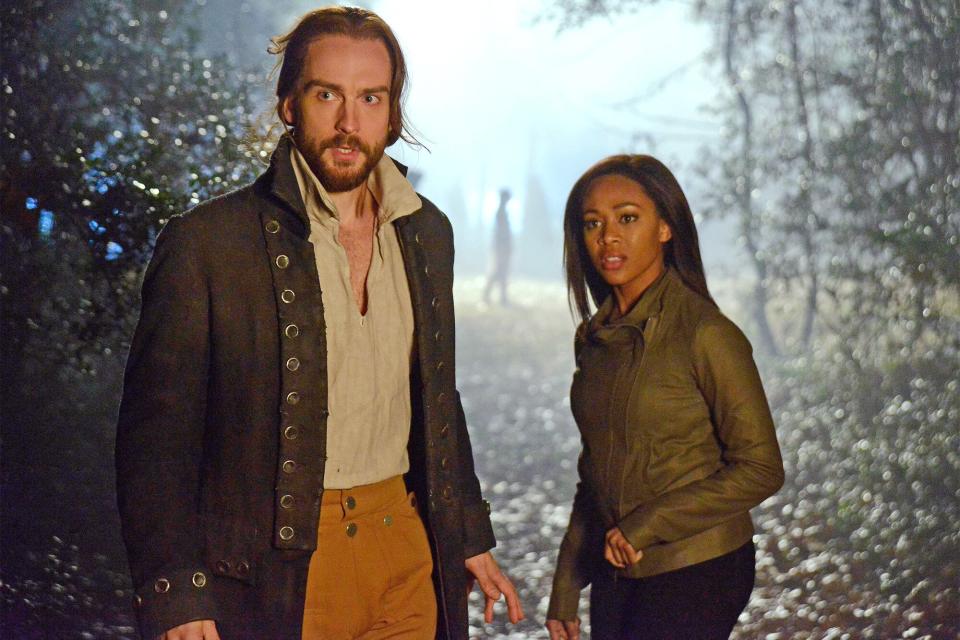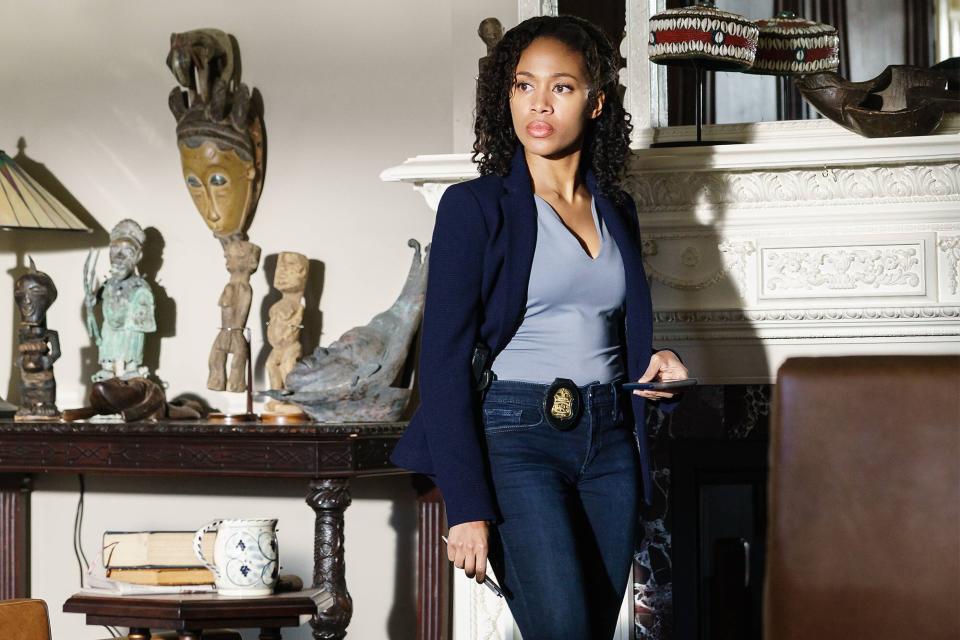Sleepy Hollow showrunner accused of racism on set, telling people not to talk to 'crazy' star

Fox's supernatural thriller Sleepy Hollow failed its Black stars and writers on what has been described as a "hellish" and "miserable" set, according to an explosive new book that explores the patterns of harassment and bias in Hollywood.
In Burn It Down (out now), journalist Maureen Ryan detailed conversations with production staffers who alleged a wide scope of conflict, including a "very us-against-her environment" cultivated against the show's Black female lead, Nicole Beharie, who was allegedly labeled "difficult" by a predominantly all-white male staff under showrunner Clifton Campbell.
The series followed Beharie's Abbie Mills, an upstate New York sheriff's lieutenant, solving crimes with a resurrected Ichabod Crane, played by Tom Mison. Orlando Jones, who played Abbie's boss, Captain Frank Irving, said Beharie and Mison, were both "out of their depths" when it came to adjusting to being leads of the show — and "no one was helping them." He cited a "double standard," noting that Beharie "did not engineer any of that." A man of color who worked on the show identified only as Robert echoed similar sentiments, noting that Beharie and Mison, who is white, "went through steep learning curves that sometimes involved friction with colleagues," but "Beharie's behavior was weaponized against her in a way that Mison's was not."

FOX/Getty Tom Mison and Nicole Beharie on 'Sleepy Hollow'
Multiple people with power "claimed not to have had a good experience" with Beharie, including people who have not met her, Robert said in the book. "When a bunch of white guys say a person of color is difficult, I tend to assume that there's a lot more to that story," he said. "I found her to be pleasant, extremely talented, and an actor who was adjusting to being a lead. There are growing pains with that. In the time I was there, where the discrepancy came in was how their growing pains were viewed and handled."
Writer Shernold Edwards also recounted a "miserable" and "hellish" experience on set, claiming that when she suggested a one-on-one between her and Beharie, Campbell "went off" on her and said she couldn't talk to Beharie, whom he allegedly called "crazy." When reached by Ryan for her book, Campbell called the allegation "patently false," describing Beharie as "cordial and fun" and maintaining that Beharie and Mison were treated the same on set.
Another incident chronicled in Ryan's book involved the all-white staff discussing what should be done about a Black woman's hair. Edwards recalled the macroagression of Campbell and two other white staffers debating "whether the curly hair was cute, and whether it looks good and was professional." Ryan also noted that one unnamed source told her there was "resistance at the studio level to Beharie having natural hair on screen," though the request was eventually granted.
In response, Campbell told Ryan the hair conversation was the "room reacting to the studio/network's decision" and he was conveying "the studio/network's decision that she could wear her hair more naturally so long as she maintained a 'professional' look.'" He added that for part of season 3, Beharie wore "her own personal wigs, which she asked that we use."

FOX/Getty Nicole Beharie on 'Sleepy Hollow'
Edwards also claimed Campbell cried in her presence when he felt accused of racial bias. (One Black writer, Edwards recalled, stormed out after stating two Black characters on the show shouldn't both turn evil.) Later, when Edwards approached Campbell about a script, "He teared up, his lip started trembling, and he told me that he couldn't talk about the script assignments, because he was very upset about the charges that had been leveled against him by me and the other Black writer, and that he had 'referred the matter to the studio,'" Edwards said.
Campbell became emotional a second time after fans on social media criticized the show's handling of race, according to Edwards. "He was like, 'Oh, Twitter's accusing me of being racist. And my parents would never let us use that word in the house,'" according to Edwards, "He said, 'That's not how I was raised. I'm not like that.'" In response, Campbell told Ryan he did not cry but became "emotional a couple of times." He said he never made series decisions "based on race" and human resources found "nothing inappropriate about the distribution of script assignments," adding, "Anyone falsely accused of racism likely would be more emotional than average."
Conflict evaded the set from the get-go, including under early season showrunners like Mark Goffman. "There were times when serious issues were brought not just to Mark, but to the powers that be, so to speak," Robert said. "And they either brushed them aside or they were just not handled" due to the people in power being "conflict averse or unwilling to have tough conversations."
Beharie, who has previously spoken about her mistreatment on set, and Mison did not provide comment to Ryan for the book.
Sign up for Entertainment Weekly's free daily newsletter to get breaking TV news, exclusive first looks, recaps, reviews, interviews with your favorite stars, and more.
Related content:

 Yahoo Sports
Yahoo Sports 